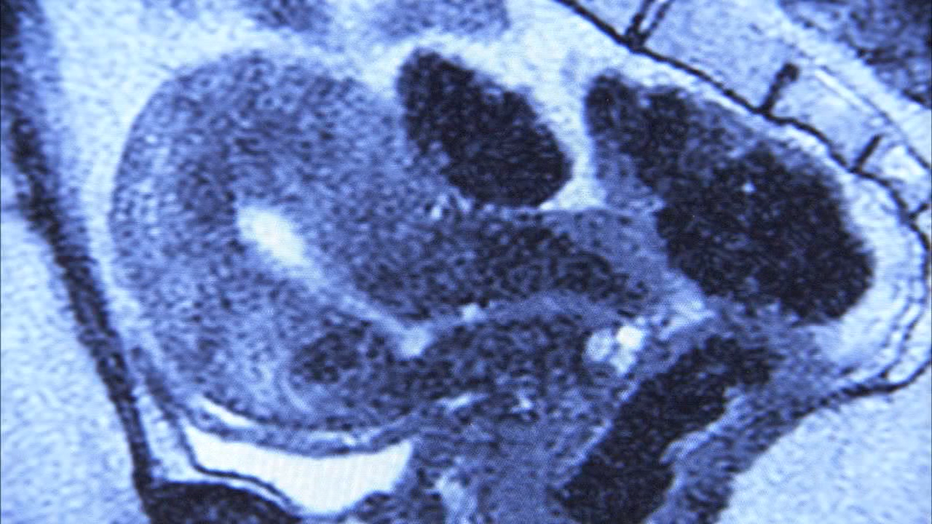The Fertility Factor: A journey to motherhood after struggling with infertility for more than a decade

The Fertility Factor
The road to motherhood is not always easy. For Gessie Thompson and her husband, Marc, the journey was painful. The couple struggled with infertility for more than a decade. FOX 5 NY's Tashanea Whitlow has the story.
The road to motherhood is not always easy.
For Gessie Thompson and her husband, Marc, the journey was painful. The couple struggled with infertility for more than a decade.
Gessie found out uterine fibroids were causing her infertility.
Fibroids are benign tumors of the uterus that often come back after they are removed. It's a condition so common the American Journal of Obstetrics & Gynecology writes, "Fibroids should be considered a public health issue."
Dr. Jessica Opoku Anane, a gynecological surgeon with Columbia University specializing in removing fibroids with minimally invasive techniques, says 70 percent of women suffer from fibroids, while Black women are disproportionately impacted.

Fibroids are growths made up of smooth muscle cells and fibrous connective tissue.
Oftentimes they get put into this rabbit hole of going to treat the fibroids, but not actually diagnosing them with the other disorders that are really causing the symptoms."
Those other disorders include Polycystic Ovary Syndrome, or PCOS, a hormonal disorder, and Endometriosis, where cells grow outside the uterus. Both can impact pregnancy outcomes. Dr. Opoku-Anane travels across the globe removing fibroids from women as large as 18 centimeters.
"I do surgery in Ghana, and they are horrible in Ghana. In Kenya, I've done it just affects all black women."
And the reasons why are not entirely clear.
"Some believe there was a genetic component to fibroids, which there may be, but some of it is probably environmental."
Experts like distinguished Rutgers University professor, Dr. Deborah Grey White, who specializes in the history of Black women in America, believe disparities stemming from historical racial bias also impact Black women's health.
RELATED: The Donor Dilemma: Black donor shortage hurts women looking for sperm
Noting, "When you have policies that address women or thoughts about women, it's usually white women. And so as both female and black, we often get that short, shifted…and that's been historical."
Dr. Grey White also discussed the inequalities regarding medical care for Black women.
"The experiments that were done on our bodies, we're used to really make advances in the field of gynecology, we still have issues that don't seem to be … addressed," she said.
Recent data shows that in NYC, Black women, on average, are 9.2 times more likely to die from pregnancy-related causes than white women. And are twice as likely to suffer from infertility nationwide.
Dr. Tia Jackson Bey at Reproductive Medicine Associates fertility center in Brooklyn provides black women access to advanced procedures, like IVF and IUI. Intrauterine insemination is where a doctor physically introduces sperm inside the uterus for pregnancy.
While IVF, an embryo is created outside the body for possible implantation resulting in a baby. On average, a single cycle can cost between $12,000 - $30,0000. Both make motherhood a possibility.
Something Gessie only realized after she decided to share her story with Essence magazine, and it went viral.

Gessie Thompson and her husband, Marc, struggled with infertility for more than a decade.
"You know, I learned, wait a minute, this was not just my personal hell. There were millions of women all over going through this because of the stories that came pouring in."
And after everything Gessie endured, she got her happy ending. Her miracle baby, a daughter, is now 11 years old. Her name is Nia, and it means purpose.
"I literally birth my purpose because birthing her, my story was told in Essence magazine from there."
Gessie became a patient advocate. She started a wellness company, "The Detox Now." It uses integrative medicine to help other women struggling with infertility and fibroids.
"I say integrative because I don't want people thinking. I'm saying don't go to the doctor now, but I say you can control what you consume mentally, emotionally, and physically. And then you also can see what you need to do medically. Look at both.
A mother and activist who, despite being knocked down, Gessie continues to stand tall, fighting for Black women's health and motherhood.
"I lived to tell the story and to and to enjoy my child."

